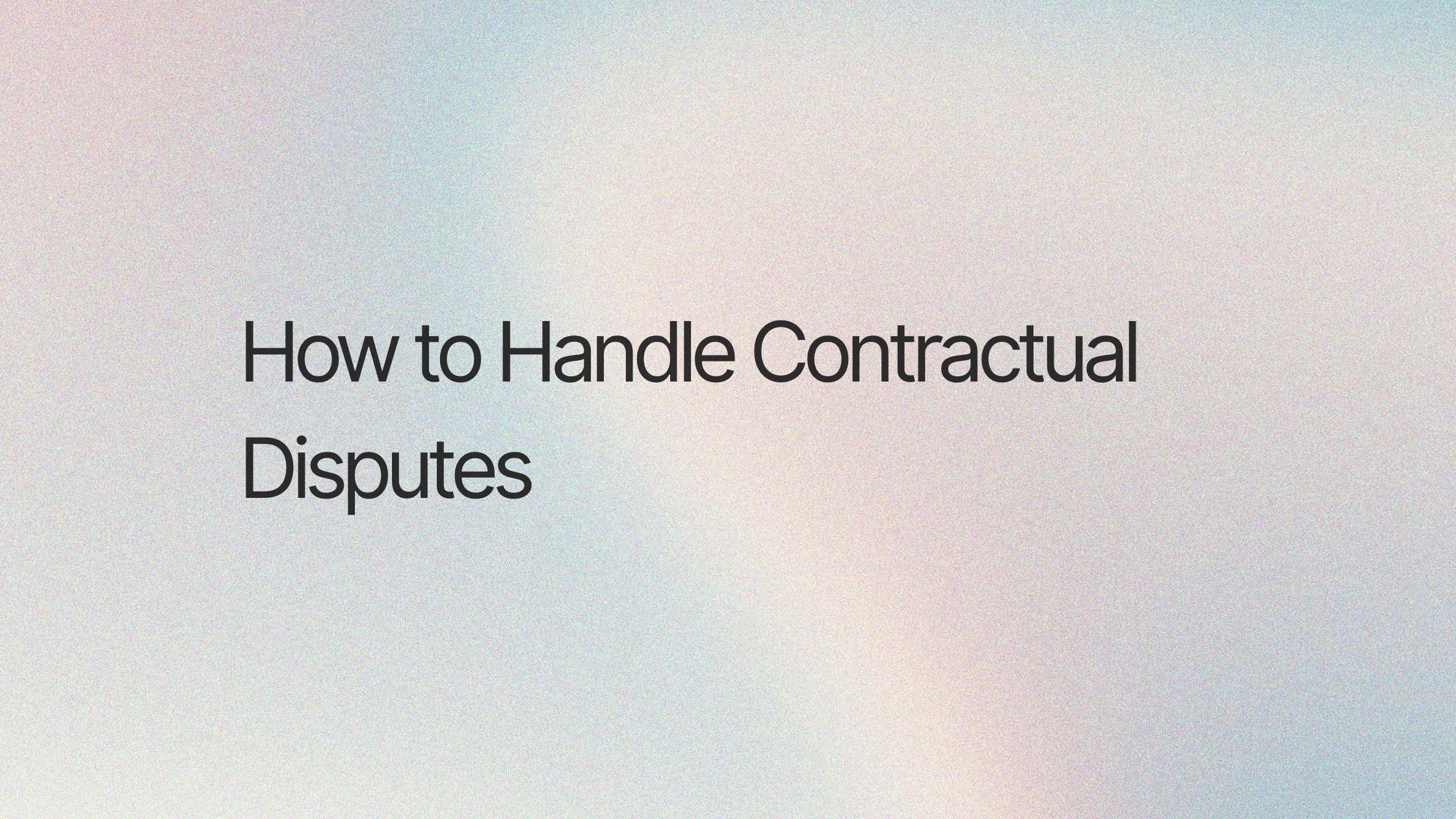Contracts are the backbone of any business relationship, ensuring that both parties fulfill their commitments. But what happens when one side fails to deliver? Contract disputes, especially over payments, are common and can be frustrating. If a client refuses to pay for work you’ve done, knowing your legal options can help you resolve the issue efficiently.
In this guide, we’ll walk through a real-world example of a non-payment dispute, common reasons for such disputes, steps to resolve them, and how to safeguard your business legally. Plus, we’ll explore how LawSimpl.ai can support you throughout the process—from research to drafting legal documents.
A Common Business Dispute: Non-Payment for Services
Scenario:
Imagine you’re a software developer who signs a contract with a retail business to build their e-commerce website. The agreement states:
- The project will take six months.
- The client will pay 50% upfront and 50% upon completion.
- There will be penalties for late payments.
You complete the project on time and meet all the agreed-upon requirements. But when you request the final payment, the client refuses, claiming dissatisfaction—without any clear justification. Now, you’re left with unpaid dues for work you delivered as promised.
Why Do These Disputes Happen?
Non-payment disputes can arise for several reasons:
- Unclear contract terms – Vague deliverables or undefined quality standards can create confusion.
- Poor payment conditions – No strict timelines or unclear invoicing rules lead to delays.
- Client disputes quality – Some clients delay payments by claiming dissatisfaction.
- Financial problems – The client might be struggling to make payments.
How LawSimpl.ai Helps:
- Helps review contracts before signing to ensure clear terms.
- Finds similar legal cases to understand your options.
Steps to Resolve a Non-Payment Dispute
If a client refuses to pay, don’t jump straight to legal action. Follow these steps first:
Step 1: Send a Friendly Reminder
Start with a polite email reminding the client about the pending payment. Attach the invoice, contract, and proof of work completion. Keep the tone professional, as sometimes clients just forget.
Step 2: Negotiate a Solution
If the client raises concerns about the work, discuss possible fixes within reason. If they’re facing financial issues, offer a payment plan instead of a lump sum.
Step 3: Send a Legal Demand Notice
If the client still refuses to pay, send a Legal Demand Notice stating the consequences of non-payment, including legal action.
How LawSimpl.ai Helps:
- Drafts professional demand notices using ready-made templates.
- Summarizes key contract clauses to reinforce your claim.
Building a Strong Legal Case
If the client ignores the demand notice, you may need to take legal action. To build a strong case, gather the following:
- A signed contract – Ensure it includes clear deliverables and payment terms.
- Work records – Emails, progress reports, and approvals from the client.
- Invoices & Payment Records – Copies of invoices and proof of partial payments, if any.
- Communication history – WhatsApp messages or emails confirming the agreement.
How LawSimpl.ai Helps:
- Organizes and summarizes legal documents for easy access.
- Finds case laws that strengthen your legal argument.
Sample Legal Demand Notice
[Your Business Name]
[Your Address]
[Your Email]
[Date]
To:
[Client’s Name]
[Client’s Address]
[Client’s Email]
Subject: Urgent Payment Reminder – Legal Notice
Dear [Client’s Name],
This letter serves as a formal demand for payment of INR [Amount], which remains unpaid despite multiple reminders. As per our contract dated [Contract Date], you were obligated to make the final payment upon project completion on [Completion Date]. The project was delivered as agreed, yet the payment remains outstanding.
Please arrange payment within [7 days] of receiving this notice. If payment is not received, we will be forced to pursue legal action to recover the dues along with penalties and legal expenses.
We hope to resolve this amicably and look forward to your prompt response.
Sincerely,
[Your Name]
[Your Position]
[Your Contact Information]
How LawSimpl.ai Helps:
- Quickly generates legal demand notices.
- Auto-fills legal references based on contract terms.
Taking Legal Action
If the demand notice is ignored, consider filing a case in court. Here’s what to know:
- Where to file: Check the contract for jurisdiction details.
- Legal grounds: Breach of contract, non-payment, and damages.
- What you can claim: Pending dues, interest, and legal costs.
How LawSimpl.ai Helps:
- Provides legal references to support your claim.
- Assists in drafting legal petitions with all required documents.
- Summarizes court procedures so you’re prepared.
Conclusion
Handling payment disputes can be stressful, but with the right approach, you can resolve them effectively. Always start with polite communication, move to formal legal action if necessary, and ensure your contracts are airtight to prevent future issues.
With LawSimpl.ai, you don’t have to navigate these legal challenges alone. From drafting contracts and notices to researching case laws and filing petitions, LawSimpl.ai makes the legal process simpler and more efficient.
Facing a contract dispute? Let LawSimpl.ai assist you take control of your legal matters today!
